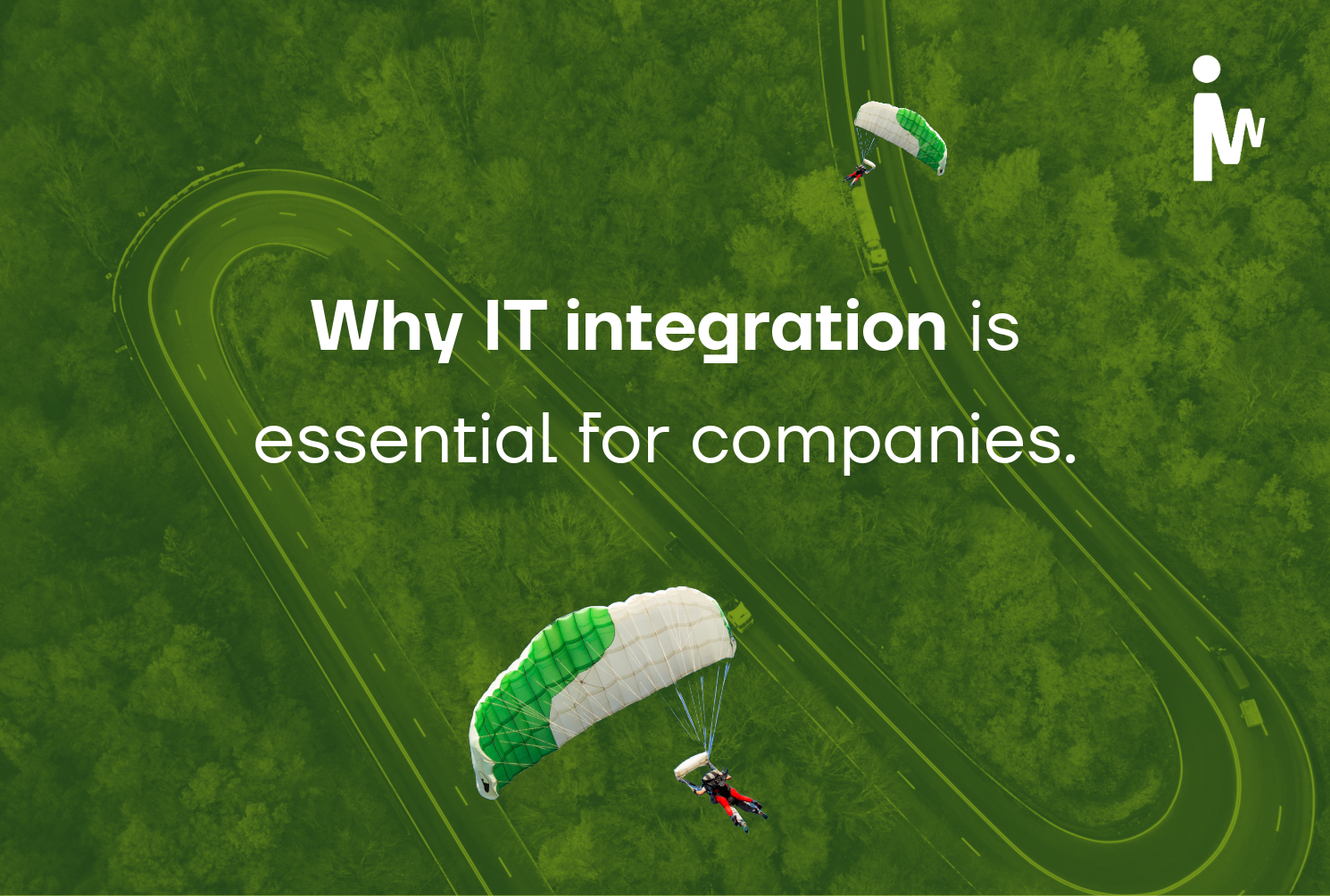Why composability ensures the future viability of companies
 integrationWorks
·
2 minute read
integrationWorks
·
2 minute read

In a dynamic world where technological changes, global crises and market uncertainties are the norm, the ability to adapt is more crucial than ever. Companies that design their IT architecture to be flexible and modular are better positioned to drive innovation and remain competitive in the long term. The key to this is composability - an approach that enables efficiency and agility through modularity and seamless integration.
What is composability?
Composability describes the ability to design IT architectures from reusable building blocks. These modules, which are connected to each other via APIs, enable companies to quickly adapt systems and introduce new functionalities. In contrast to rigid IT systems, composability creates a foundation that can be flexibly expanded and adapted - ideal for remaining agile in an uncertain environment.
An example: In a company, a modular approach could mean that a new service for customer payments or an optimized warehouse management system can be easily integrated into existing processes without disrupting operations.
Why is composability important?
Global events such as the COVID-19 pandemic have shown how important it is to react quickly to changes. Companies with rigid IT structures had to laboriously introduce new solutions, while agile organizations were able to act immediately.
Composability promotes innovation by enabling quick and uncomplicated adjustments:
- Agility through modularity: New technologies or services can be implemented more quickly.
- Cost efficiency: Reusable building blocks reduce development times and IT cost
- Scalability: Companies can flexibly expand their IT structure in line with business growth.
A good example is Kohler, a global company that modernized its IT systems and made them more efficient by introducing composability.
Challenges on the road to composability
Despite the benefits, there are hurdles that companies need to overcome:
- Old systems: Many organizations still use monolithic systems that are difficult to integrate.
- Knowledge gaps: According to a survey by Boomi, managers often lack an understanding of the benefits of composability.
- Cloud infrastructure: Without a solid cloud foundation, the implementation of modular architectures remains a challenge.
Understanding and acceptance of composability at all levels of the company is crucial. This requires managers who recognize and promote the added value.
How Boomi helps with the implementation of composability
The Boomi platform offers solutions to support companies on the path to composability. Its strengths lie in the seamless integration of data, applications and systems, which enable a flexible and scalable IT architecture.
Benefits of the Boomi platform:
- Fast integration: Applications and data are connected in record time.
- Automation: Processes can be automated and made more efficient.
- Future-proofing:
- With Boomi, companies are ready for technological innovation and market change.
A real-life example: A company that manages international supply chains was able to optimize its processes, connect data streams and significantly increase its market reach with Boomi.
How do companies start their digital transformation?
The path to composability starts with a clear strategy:
- Create awareness: Executives and IT teams should be trained to understand the benefits of modular architectures.
- Choosing the right technology: A platform like Boomi offers the necessary flexibility and performance.
- Experts such as
- support companies with implementation.
IntegrationWorks helps you to modernize your IT landscape, optimize processes and take full advantage of the Boomi platform.
Why you should act now
Composability is not just a trend, but a necessity for the future. Companies that rely on rigid structures run the risk of being left behind. With modular IT systems, you can implement innovations faster, reduce costs and react flexibly to market developments.
Start your journey to composability now and secure long-term competitive advantages - with Boomi and the experienced team at IntegrationWorks.
Concluding thought
Composability is the key to adaptability and innovation. Companies that rely on modular IT architectures are not only better prepared for challenges, but also ensure long-term success. Use the Boomi platform and the expertise of IntegrationWorks to drive your digital transformation forward!
Source: Boomi Blog



